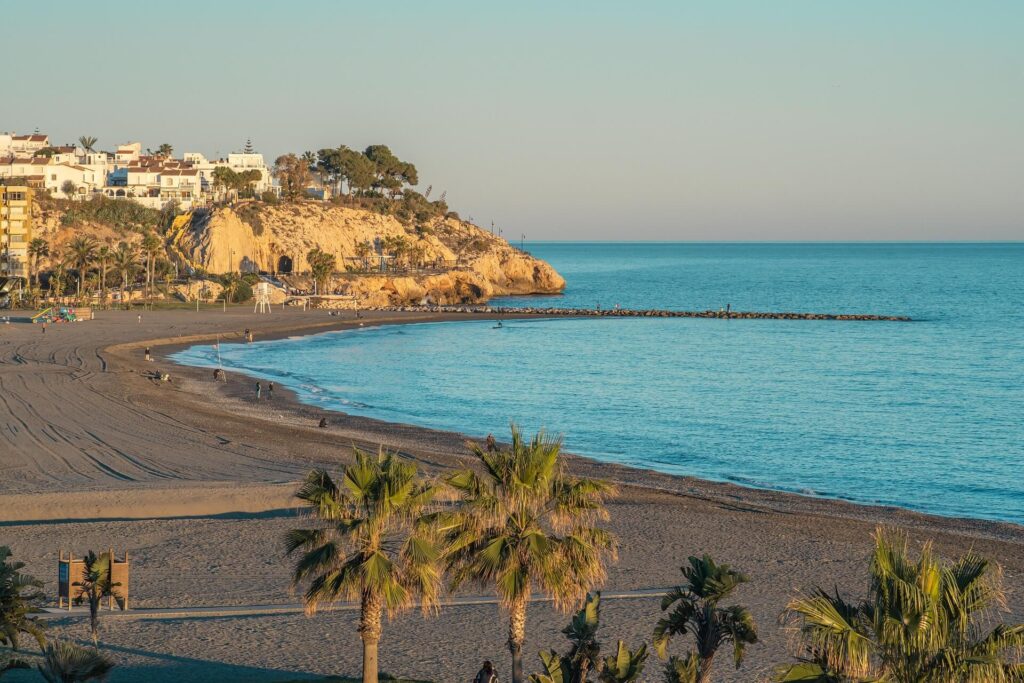The Costa del Sol, with its golden beaches, warm Mediterranean climate, and vibrant Spanish culture, has long been a dream destination for expats looking to relocate. Whether you are seeking a relaxed retirement, a fresh career start, or simply an improved quality of life, this sun-drenched region in southern Spain offers an attractive mix of modern comforts and traditional charm. Moving to a new country, however, involves careful planning and preparation. Understanding the legal requirements, cost of living, housing options, healthcare system, and social life will ensure a smooth transition to your new home.

Why Expats Choose the Costa del Sol
The Costa del Sol is one of Spain’s most desirable regions for expats, thanks to its exceptional lifestyle, friendly atmosphere, and convenient location. With more than 320 days of sunshine a year, mild winters, and a diverse international community, it offers an excellent balance between a relaxed Mediterranean way of life and modern infrastructure. The region boasts a thriving expat population, with British, Scandinavian, Dutch, German, and French communities well-established in cities like Marbella, Fuengirola, and Nerja.
Beyond the weather, the Costa del Sol offers a cost of living that is generally lower than many parts of northern Europe. Eating out, groceries, and utility bills are often more affordable, allowing expats to enjoy a high quality of life without breaking the bank. The availability of international schools, world-class golf courses, and a growing tech and business sector further contribute to the region’s appeal.
Residency and Legal Requirements
Before making the move, it is essential to understand Spain’s residency requirements. For EU citizens, the process is relatively straightforward, requiring registration as a resident with the local town hall and obtaining a Número de Identificación de Extranjero (NIE), the foreign identification number used for official transactions. Non-EU citizens, including British expats post-Brexit, need to apply for a visa, such as the Non-Lucrative Visa (for retirees) or the Golden Visa (for property investors).
Those planning to work in Spain may require a work visa or a self-employment permit. Digital nomads and remote workers may also benefit from Spain’s evolving visa policies aimed at attracting international talent. It is advisable to consult with an immigration specialist to ensure that all legal requirements are met before relocation.
Finding a Home in the Costa del Sol
The Costa del Sol offers a range of housing options, from luxurious beachfront villas to charming townhouses in traditional Andalusian villages. Marbella and Puerto Banús are known for their high-end properties and exclusive lifestyle, attracting affluent expats and celebrities. Fuengirola and Benalmádena are popular with families and retirees, offering a mix of beachfront living and urban conveniences. Nerja and Estepona provide a more laid-back atmosphere, appealing to those seeking a quieter and more traditional Spanish experience.
Renting is often the best option for new arrivals who want to explore different areas before committing to buying a property. The rental market is diverse, with options ranging from modern apartments to rural fincas. Long-term rentals are typically more affordable than short-term holiday lets, and securing a lease often requires proof of income or a Spanish bank account.
Buying property is also a popular choice among expats, given the relatively affordable real estate prices compared to northern European markets. However, the process can be complex, involving legal checks, property surveys, and financial considerations. Hiring a reputable real estate agent and a lawyer specializing in Spanish property law is highly recommended to avoid potential pitfalls.
Cost of Living and Financial Considerations
While the Costa del Sol offers an excellent quality of life, it is important to understand the cost of living and financial aspects of moving to Spain. Daily expenses such as groceries, dining out, and transportation tend to be more affordable than in many northern European countries. However, costs vary depending on location, with cities like Marbella and Málaga being more expensive than smaller towns.
Taxes are another crucial factor to consider. Spain has a progressive income tax system, and expats may be subject to Spanish tax laws depending on their residency status. Those living in Spain for more than 183 days a year are considered tax residents and must declare their worldwide income. Seeking advice from a tax consultant specializing in Spanish regulations can help expats navigate their financial obligations.
Banking is relatively straightforward, with both local and international banks operating in the Costa del Sol. Opening a Spanish bank account is essential for paying bills, renting property, and managing daily expenses. Some banks offer specific services for expats, including English-speaking staff and international transfers.
Healthcare and Insurance
Spain has a well-regarded healthcare system, providing high-quality medical services to residents. Expats who register as residents and contribute to social security can access public healthcare, which is generally of a high standard. The Costa del Sol has numerous public hospitals and health centers, with major facilities in Málaga, Marbella, and Estepona.
Many expats choose private healthcare for faster access to specialists and English-speaking doctors. Private health insurance is often required for non-EU residents applying for visas and is also beneficial for those who prefer shorter waiting times. Spain has a range of private hospitals and clinics, with some offering services tailored to the expat community.
Education and Schools
For families moving to the Costa del Sol, education is a key consideration. The region has a mix of public, private, and international schools catering to different educational needs. Spanish public schools are free and offer full immersion into the language and culture, though this may be challenging for children unfamiliar with Spanish.
Private and international schools are popular among expat families, offering curriculums such as the British GCSE and A-Level system, the International Baccalaureate (IB), and other European educational programs. Institutions like Aloha College in Marbella and the British School of Málaga provide high-quality education with English as the primary language of instruction.
Employment and Business Opportunities
While many expats move to the Costa del Sol for retirement, others relocate for work or to start a business. The region has a growing job market, particularly in tourism, hospitality, real estate, and technology. Málaga has emerged as a tech hub, attracting companies and entrepreneurs in digital industries.
For those considering self-employment, Spain offers various options for freelancers and business owners. Becoming an autónomo (self-employed worker) requires registration with Spanish authorities and social security contributions. The Costa del Sol’s strong tourism industry also presents opportunities for businesses in hospitality, wellness, and property services.

Cultural Integration and Social Life
One of the most rewarding aspects of moving to the Costa del Sol is immersing in the Spanish culture. Learning the language is essential for better integration, though many locals in tourist areas speak English. Enrolling in Spanish classes, joining local clubs, and participating in community events can help expats build connections and feel more at home.
The social scene is diverse, with expat communities organizing regular meetups, business networking events, and cultural activities. The relaxed pace of life, known as mañana culture, encourages socializing, enjoying long lunches, and embracing the region’s traditions. Annual events like the traditional Semana Santa (Holy Week) and the famous Feria de Málaga offer insight into Spanish heritage and provide fantastic opportunities to experience local customs.
Transportation and Connectivity
Getting around the Costa del Sol is convenient, thanks to well-developed transport networks. Málaga Airport is a major international hub, offering connections to cities across Europe and beyond. The coastal train service links Málaga with towns like Torremolinos and Fuengirola, providing an efficient way to travel.
Driving is a common mode of transport, with many expats choosing to buy or rent a car. Spain recognizes some foreign driving licenses, but long-term residents may need to exchange their license for a Spanish one. The road network is well-maintained, and highways make it easy to explore the region.
Conclusion: A New Life in the Costa del Sol
Moving to the Costa del Sol is an exciting and life-changing decision that offers expats a chance to enjoy a relaxed and fulfilling lifestyle. From securing residency and finding the perfect home to embracing Spanish culture and building a social network, each step of the relocation process brings new experiences. With careful planning and a sense of adventure, expats can create a rewarding and enjoyable life on one of Europe’s most beautiful coastlines.















